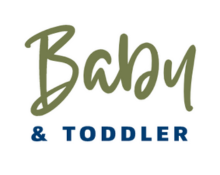
Breastfeeding in the first 24 hours after birth is a crucial time for establishing breastfeeding and providing your newborn with important nutrients and antibodies. Here are some key points to keep in mind during this early breastfeeding period:
Early initiation: The World Health Organization (WHO) recommends initiating breastfeeding within the first hour after birth, known as the “golden hour.” During this time, your baby is typically alert and ready to nurse. Skin-to-skin contact and breastfeeding in the early hours help stimulate milk production and establish a strong breastfeeding relationship.
Colostrum: In the first few days after birth, your breasts produce colostrum, a nutrient-rich, thick, and yellowish milk. Colostrum is packed with antibodies that provide essential protection for your baby’s immune system. Even though the amount may seem small, it is highly concentrated and perfectly suited to your baby’s needs.
Rooming-in: Keeping your baby with you in your hospital room or at home (if giving birth at home) allows for frequent breastfeeding and enhances the opportunity for skin-to-skin contact. Rooming-in helps establish a consistent breastfeeding routine and promotes bonding between you and your baby.
Responsive feeding: During the first 24 hours, breastfeed your baby on demand or whenever they show signs of hunger. Look for hunger cues, such as rooting, sucking motions, hand-to-mouth movements, or increased alertness. Offering the breast whenever your baby shows signs of hunger helps establish your milk supply and ensures your baby receives the nourishment they need.
Seek support: If you have any difficulties or concerns during the first 24 hours of breastfeeding, don’t hesitate to seek support from a lactation consultant, midwife, or healthcare provider. They can provide guidance, answer your questions, and help ensure a successful start to your breastfeeding journey.
Take care of yourself: It’s important to prioritize your own well-being during this time. Stay hydrated, eat nutritious meals, and get as much rest as possible. Proper self-care supports milk production and helps you recover from childbirth.
Remember that breastfeeding is a learning process for both you and your baby, and it may take time to establish a comfortable and effective breastfeeding routine. Be patient, seek support when needed, and trust in your body’s ability to provide nourishment for your baby.
